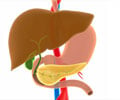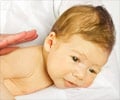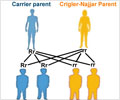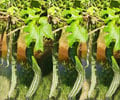BiliSpec, the new low-cost, efficient, affordable and battery-powered reader can save newborn lives in African Hospitals by testing the bilirubin levels immediately.
Highlights
- BiliSpec, a low-cost and battery-powered reader is designed to measure the concentration of total bilirubin in newborns
- African Hospitals can afford the low-cost BiliSpec than the standard high-resource settings
- Neonatal jaundice affects 60 percent of the newborns and if left untreated can lead to neurological impairment and death
TOP INSIGHT
BiliSpec, the new neonatal technology can save the lives of the newborns is very efficient and affordable by African Hospitals.
The money earned at the competition will pave the way for the research team to carry out their visionary plan to at least halve the number of newborn deaths in the hospitals of Africa in the next ten years.
NEST360°'s Rebecca Richards-Kortum, a Rice bioengineering professor, and the co-author of this study has worked more than a decade to bring efficient, affordable neonatal technologies including BiliSpec to Africa said that saving lives of the newborns in sub-Saharan Africa is possible.
She also said, "It simply requires the right tools in the right hands at the right time."
BiliSpec Detector
The study appears in the Early Edition of the Proceedings of the National Academy of Sciences.
Jaundice is caused when the bilirubin levels increase in the bloodstream.
Nearly 60 percent of the newborns are affected by jaundice, which causes severe, untreatable brain damage and can even lead to death when left untreated.
Hospitals in Africa cannot afford the standard jaundice tests like multiple expensive disposables and laboratory equipment like centrifuges or spectrophotometers.
Babies in sub-Saharan Africa are 100 times more likely to die of jaundice than babies in the U.S.
This is because doctors can only diagnose jaundice in sub-Saharan Africa with only their eyes as the standard tests are not available.
Low-cost Method Can Save Lives
Pelham Keahey, a Rice applied physics graduate student, the study's co-author who worked alongside clinicians said, "Clinicians in sub-Saharan Africa typically diagnose jaundice by looking at a child and gauging the color of their skin or the whites of their eyes."
The results showed that BiliSpec had a comparable accuracy to the more expensive laboratory tests.
Each BiliSpec test costs only about 5 cents. It can be performed in just two minutes, right at the patient's bedside.
The price is affordable and is within reach for cash-strapped sub-Saharan Africas hospitals.
"The next step is a larger, two-year follow-up study of efficacy and usability that will be conducted at five hospitals in Malawi," Keahey said.
Rice University won the funding for the follow-up study in August from Saving Lives at Birth, which is a joint undertaking by the U.S. Agency for International Development (USAID), the Bill & Melinda Gates Foundation and the governments of Norway, Canada, and South Korea.
BiliSpec is one component of a 17-piece neonatal package called Newborn Essential Solutions and Technologies (NEST), which is designed specifically for the sub-Saharan African hospitals.
Reference
- Pelham A. Keaheya, Mathieu L. Simerala et al. Point-of-care device to diagnose and monitor neonatal jaundice in low-resource settings. Proceedings of the National Academy of Sciences (2017).
Source-Medindia
 MEDINDIA
MEDINDIA





 Email
Email








